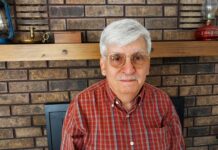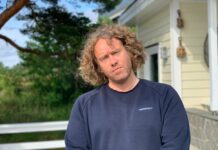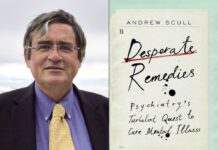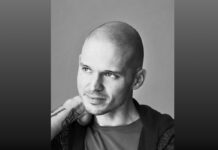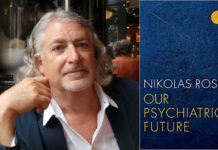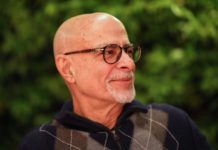Medical Organizations Turn Blind Eye to Harms of Maternal Antidepressant Use: A Conversation With...
Adam Urato and Joanna Moncrieff join Robert Whitaker on the Mad in America podcast to discuss the risks posed by maternal use of antidepressants.
Psychotherapy, Spirituality, and Democratic Socialism: A Conversation with Frank Gruba-McCallister
Frank Gruba-McCallister argues that healing must confront capitalism, reclaim spirituality, and advance justice.
Is Dialogue the Best Medicine? A Conversation With Jaakko Seikkula
Jaakko Seikkula joins us on the MIA podcast to discuss how Open Dialogue came to be, the research that shows its positive outcomes, how psychiatry has failed to learn from Open Dialogue practice and more.
How to be a Critical Psychologist Without Losing Your Soul: A Conversation With Zenobia...
On the Mad in America podcast, Zenobia Morrill, José Giovanni Luiggi-Hernández and Justin Karter join us to explore the need to raise awareness of psychological approaches that challenge mainstream perspectives.
Chemically Imbalanced: Joanna Moncrieff on the Making and Unmaking of the Serotonin Myth
Joanna Moncrieff joins Robert Whitaker to talk about her latest book, titled Chemically Imbalanced: The Making and Unmaking of the Serotonin Myth. They discuss the serotonin story and the fact that there is no good evidence that a serotonergic deficiency is a primary cause of depression.
Science Under Pressure, Humanity at Stake: An Interview with John Ioannidis
The Stanford professor behind the most famous paper in modern medicine warns that much of today’s research is unreliable, yet insists the project is worth defending.
Therapy in the Age of Self Management and Public Abandonment: A Conversation with Psychological...
Talia Weiner discusses how conservative politics and market logic reshape mental health care.
Why Psychosis Is Not So Crazy: A Conversation with Stijn Vanheule
Vanheule urges clinicians to listen for the structure in psychotic thought. He offers clinical examples that reframe hallucinations as a form of creative response to unspeakable dilemmas.
The Maudsley Deprescribing Guidelines: An Interview with David Taylor and Mark Horowitz
Tapering should be tailored and adjusted to the patient, slowed and more hyperbolic in people who have severe and longstanding reactions.
“I Made it Through the Horrors of Psychiatric Drug Withdrawal” A Conversation with Comedian...
Dex Carrington, AKA Jørgen Kjønø, is a Norwegian-American stand-up comedian and actor. He joins us on the Mad In America podcast to talk about his experience with Lyrica and Zyprexa, including a five-and-a-half-year taper after 10 years on the drugs.
The Poetics and Politics of Our Mental Health Metaphors: An Interview with Laurence Kirmayer
Ayurdhi Dhar interviews influential cultural psychiatrist Laurence Kirmayer on how metaphors, histories, and social structures contour our experiences of suffering and healing.
Andrew Scull—Desperate Remedies: Psychiatry’s Turbulent Quest to Cure Mental Illness
Sociologist and author Andrew Scull discusses the history of psychiatry's "Desperate Remedies," from lobotomy and the asylum to the failures of today's drugs and the fads of ketamine and deep brain stimulation.
Surviving Antidepressants: An Interview with Adele Framer
That is the truth about withdrawal syndrome: It’s like a 50-50 chance that you’re going to have a problem. If you’re in the unlucky half, you’re gonna be really unlucky.
Peer-Support Groups Were Right, Guidelines Were Wrong: Dr. Mark Horowitz on Tapering Off Antidepressants
In an interview with MIA, Dr. Horowitz discusses his recent article on why tapering off antidepressants can take months or even years.
From Freud to Fanon: How Daniel Gaztambide is Redefining Psychoanalytic Practice
In this interview, Daniel Gaztambide discusses how decolonial perspectives can transform psychoanalytic practice.
Laura Delano: Connecting People Through the Inner Compass Initiative
An interview with Laura Delano, Co-Founder and Executive Director of the Inner Compass Initiative and The Withdrawal Project, which aim to create safe spaces for people to connect and the opportunity to learn about and be guided through the process of getting beyond the mental health system and off psychiatric drugs.
Kids Are Not the Problem: An Interview With Gretchen LeFever Watson
In this interview, Brooke Siem, who is the author of a memoir on antidepressant withdrawal, May Cause Side Effects, interviews Gretchen LeFever Watson, PhD.
Gretchen...
“Dad, Something’s Not Right. I Need Help”: Richard Fee on the Dangers of Adderall
In appointments that last five to seven minutes, all doctors do is push drugs—psychiatric drugs, ADHD meds, everything.
Medication-Free Treatment in Norway: A Private Hospital Takes Center Stage
At the Hurdalsjøen Recovery Center in Norway, patients with a long history of psychiatric hospitalizations are tapering from their medications and, in a therapeutic environment that emphasizes a good diet, exercise, and asking patients "what do they want in life," are leaving their old lives as chronic patients behind.
Anders Sørensen – Tackling Psychiatric Drug Withdrawal Through Research and in Practice
Anders Sørenson is a Danish clinical psychologist with a special interest in psychiatric drug withdrawal. He has undertaken research which assesses the state of guidance on psychiatric drug withdrawal and paid close attention to tapering methods with the aim of identifying approaches which might make withdrawal more tolerable for people.
Mad Sisters: An Interview With Susan Grundy
Susan Grundy on her lifelong caregiving journey for an older sister diagnosed with schizophrenia at the age of 13.
Psychotherapy and Psychosomatics: End of an Era for Independent Journals? An Interview With Giovanni...
Giovanni Fava joins us to discuss the uncertain future of the journal 'Psychotherapy and Psychosomatics' which he edited for thirty years and which has been essential to our understanding of the impact of psychiatric treatments.
Psychiatry and the Selves We Might Become: An Interview with Sociologist Nikolas Rose
MIA’s Ayurdhi Dhar interviews the well-known sociologist of medicine, Nikolas Rose, about the role psychiatry plays in shaping how we manage ourselves and our world.
Stuart Shipko – SSRI Withdrawal: Shooting the Odds
We interview Dr. Stuart Shipko, a psychiatrist and author who has a particular interest in the side effects and withdrawal effects of SSRI antidepressants and the need for informed consent when prescribing.
Jill Nickens – The Akathisia Alliance for Education and Research
This week on the Mad in America podcast we turn our attention to prescription-drug-induced akathisia and joining me to discuss this is Jill Nickens. Jill is the president and founder of the Akathisia Alliance for Education and Research, a nonprofit organization formed by people who have personal experience of akathisia.


